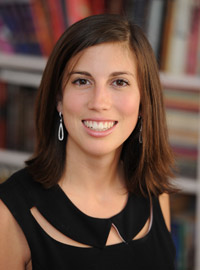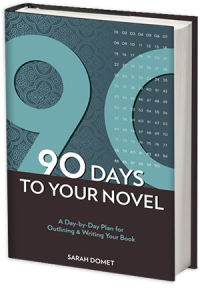Get to Know an Agent in Attendance: Kerry D’Agostino
Kerry is one of eight literary agents coming to the 2020 MWW Agent Fest, March 13-14 at the Ball State Alumni Center, Muncie, Indiana.
 Kerry D’Agostino is a literary agent at Curtis Brown, Ltd. She received her bachelor’s degree in English from Bowdoin College, her masters in Art in Education from Harvard Graduate School of Education, and her certificate in publishing from the Columbia Journalism School. She started at Curtis Brown in 2011 as assistant to Tim Knowlton and Holly Frederick in the Film and Television Department. After some time as a film and audio rights associate, she also began assisting Peter Ginsberg. In addition to her continued work with Peter, Kerry now represents authors of literary and commercial fiction, and select narrative nonfiction. She is particularly interested in work that is voice driven, accessible, and authentic. Above all, she is drawn to work that either introduces her to someone, somewhere, or something new, or makes her see something old in a new way. She lives in Brooklyn with her husband.
Kerry D’Agostino is a literary agent at Curtis Brown, Ltd. She received her bachelor’s degree in English from Bowdoin College, her masters in Art in Education from Harvard Graduate School of Education, and her certificate in publishing from the Columbia Journalism School. She started at Curtis Brown in 2011 as assistant to Tim Knowlton and Holly Frederick in the Film and Television Department. After some time as a film and audio rights associate, she also began assisting Peter Ginsberg. In addition to her continued work with Peter, Kerry now represents authors of literary and commercial fiction, and select narrative nonfiction. She is particularly interested in work that is voice driven, accessible, and authentic. Above all, she is drawn to work that either introduces her to someone, somewhere, or something new, or makes her see something old in a new way. She lives in Brooklyn with her husband.
Kerry’s Wish List:
She is looking for literary and commercial fiction and select narrative nonfiction. She is particularly interested in work that is voice driven, accessible, and authentic.
MWW agent assistant Allison Akers interviewed Kerry about her life as an agent and about coming to MWW Agent Fest.
MWW: What are some do’s and don’t’s for authors who may be attending an agent pitch fest for the first time?
KD: The Midwest Writers Workshop website has some great advice for attending agent pitch fests, and I second all of it; it’s important to know who you are meeting with, and it’s also crucial to practice your pitch, on your own and also with those you can trust to share honest feedback. Be prepared to have a conversation about your work outside of the pitch, too: what brought you to the idea? What did your writing process involve? What do you consider to be good comp titles for your work? What kind of work might you want to pursue next? As far as “don’ts” go, it’s completely understandable that this can be a nerve-wracking experience, but don’t be too nervous. Agents work in publishing because they love books, and they attend these conferences because they’re excited to discover new talent. Both parties entering the conversation are hoping for a potential match! That said, another don’t is to not be too discouraged if your project is not a perfect match for the agent. Literature is so subjective, and just because the work is not right for one person does not mean it will not be a fit for the next.
MWW: In your agent bio, you say you are interested in work that is “voice driven, accessible, and authentic,” as well as work that introduces you to new people, places, ideas, or gives a fresh take on an old concept. What work have you run across–either through your clients or leisure reading-that displays these qualifications?
KD: The best way to familiarize yourself with an agent’s taste is to study the books that they represent. My clients’ spring publications give a good sense of my interests: Leesa Cross-Smith’s So We Can Glow is a gorgeous short story collection exploring the complicated hearts of girls and women; in Nancy Wayson Dinan’s Things You Would Know if You Grew Up Around Here, a young woman sets out in the aftermath of the 2015 Memorial Day floods to find her missing friend; and with Before She Was Helen, Caroline B. Cooney takes us to the heart of a retirement community to discover long-buried secrets in her first mystery for adults. Each of the protagonists across these books is deeply relatable in some way, but each also simultaneously brings me into a new landscape of some kind, whether physical or emotional.
MWW: Do you gravitate toward a particular genre or story/memoir structure within the categories of commercial fiction, literary fiction, and nonfiction?
KD: I would not say that I’m drawn to a particular structure, but across each of these categories I’m consistently looking for work that blends a deep examination of character with narrative momentum. I’m always intrigued when I see a writer playing with structure–Leslie Pietrzyk’s Silver Girl is a great example of this, where we start with The Middle, move to The Beginning, then to the End, and then finally to Where Every Story Truly Begins–but the structure has to be purposeful, in service of the story rather than vice versa. In terms of genre, while much of my list does focus on upmarket/literary fiction for adult readers, I am also excited to be working with both authors of young adult literature and also authors of mystery/suspense.
MWW: What are some reasons that you reject a pitch, query letter, or manuscript?
KD: The most common reason that I reject a pitch, query letter, or manuscript is that I simply do not feel enough of a connection with it to feel confident that I would be that work’s most passionate advocate. There can always be unforeseen challenges in publishing, and when faced with those challenges an author deserves both an agent and an editor who shares their complete enthusiasm and their complete vision for their work. If I don’t have that vision, then I am not the right match for that work.
MWW: What are you most excited about for the Midwest Writers Workshop?
KD: I am looking forward to meeting with writers and learning about their projects! It would of course be particularly exciting to connect with a potential match, but either way I always enjoy feeling immersed in a creative community and the conversations such a community fosters.
In addition to hearing pitches and critiquing query letters, Kerry will present these sessions at the 2020 MWW Agent Fest:
- “Six Steps from Query to Publication” – This session provides a general overview of the publication process, with steps that are broken down into the following: The Query; Signing with an Agent; Submission to Editors; Negotiating the Contract; Preparing for Publication; and finally, Publication itself. Tips for understanding and navigating each stage are included
- “Subsidiary Rights” – This session explores the range of rights that can be involved in any one publishing contract, including print rights, digital rights, foreign language rights, UK rights, audio rights, and dramatic rights. Learn what each of these rights represent, and learn about the advantages of granting them to a publisher versus the advantages of reserving them.
Come and meet Kerry!



